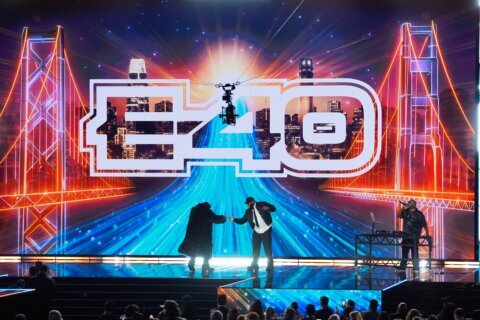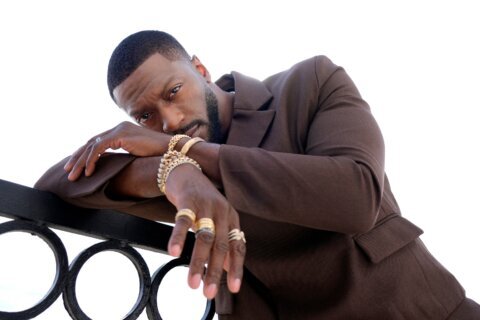WASHINGTON — Have you seen the Oscar nominees for Best Foreign Language Film?
The front runner is clearly Netflix’s “Roma,” Alfonso Cuaron’s black-and-white international darling boasting a leading 10 Academy Award nominations. However, there’s also plenty of buzz for another black-and-white film, Poland’s “Cold War,” nominated for Best Director (Pawel Pawlikowski), Best Cinematography (Lukasz Zal) and Best Foreign Language Film.
Both movies tell deeply personal stories as “Roma” is loosely based on Cuaron’s childhood caretaker growing up in 1970s Mexico City, while “Cold War” is loosely based on Pawlikowski’s parents romancing in 1950s Poland, to whom he dedicates the film during the end credits.
The story opens in 1949 Poland where an open-minded music director Wiktor Warski (Tomasz Kot) holds auditions for a new folk song-and-dance troupe. He is transfixed by a blonde singer named Zula (Joanna Kulig), who quickly wins the part and his heart. When the music outfit is transformed into post-war communist propaganda, unfurling banners of Joseph Stalin behind them on stage, Wiktor tries to convince Zula to flee with him to the Western values of Paris.
The film is a companion piece of sorts to Pawlikowski’s “Ida” (2013), which won the Oscar for Best Foreign Language Film by following a nun-in-training who discovers a dark family secret in 1960s Poland. In “Cold War,” he reunites with two-time Oscar-nominated cinematographer Lukasz Zal for stark black-and-white cinematography presented in a relatively squarish 1.37:1 aspect ratio. The duo shot on Arri Alexa XT digital cameras later printed on 35 millimeter film.
It’s easy to see why the film won Best Director at the Cannes Film Festival, where it also competed for the Palme d’Or. At times the camera is poetic, catching a reflection on a piano headboard before panning over to the pianist’s hands. Other times the camera is kinetic, down on the dance floor amid the gyrations of “Rock Around the Clock.” Most importantly, the camera takes time to breathe, holding on empty landscapes after the actors leave the frame.
Much of the story is told with little dialogue between glances. Early on, Zula questions the audition process: “Do you like me for my voice? Or in general?” Later in France, she claims, “In Poland, you were a man. You’re different here.” And despite having relationships with other people, she says her marriage “wasn’t in the church, so it doesn’t count.” This sets up a private ceremony in a bombed out church recalling Andrzej Wajda’s “Ashes and Diamonds” (1958).
It’s moments like this where the film reveals itself to be a romantic drama more than a noir. She floats the idea of danger when she admits she’s on parole for killing her father: “He made a mistake with my mother, so I showed him his fault with a knife.” We suspect her motives again when she reveals that she’s “ratting” him out to communist supervisors. Most blatantly, she stands him up at a train station (i.e. “Casablanca”), as he meta sighs, “Femme fatale, eh?”
And yet, Zula ultimately skirts the femme fatale archetype. Viewers should expect a bittersweet tone more than flat-out fatalism, as “Cold War” plays more like David Lean’s “Brief Encounter” (1945) than Billy Wilder’s “Double Indemnity” (1944). We never quite fall for the characters like we do with Lean’s classic romance, perhaps because the script is so sparse and elliptical in its narrative, covering a full decade of tumultuous Polish history with intentional timeline gaps.
While this is admirable in its gutsy conception, it keeps the film from becoming an emotional experience as much as it is an aesthetic one. Viewers may desire more connecting tissue between the time jumps, especially with so much of the 89-minute runtime devoted to songs.
There’s a reason “Cold War” is vying for directing and cinematography Oscars, rather than screenplay. That’s because it’s a daring concept with repetitive romantic encounters capped by an abrupt ending. If anything, it runs too short. Yes, it’s a similar runtime to “Ida” (2013), which clocked in at 82 minutes, but that was a simpler story confined to a time and place.
Either way, the two films are fitting companion pieces, shining a lens on how a filmmaker’s backstory influences his or her work. “Write what you know,” they say. Indeed, Pawlikowski was born in Warsaw in 1957 and in his late teens learned that his paternal grandmother was Jewish and had died in Auschwitz — hence the premise of “Ida.” At age 14, he left communist Poland with his mother for permanent exile in London — hence the premise of “Cold War.”
Thus, the final line suggests his parents walking into the afterlife: “Let’s move to the other side.” This is set up earlier by mise-en-scene at the 48:38 mark when Zula meets Wiktor in Paris. You’ll notice they kiss under the sign “Place Emile Goudeau” as he says, “I was waiting for you.” The French pronunciation of Goudeau sounds exactly like “Godot,” as in Samuel Beckett’s “Waiting for Godot,” where characters wait in vain for a man named Godot (i.e. God).
And yet, for all this directorial symbolism, there remains a slight emotional distance from the characters. Perhaps, like “Roma,” this stems from subject matter so personal to the filmmaker that the audience can’t possibly feel it with the same passion as the creator. The result is a film that we respect, even admire, for its technical prowess more than we hold in our hearts. That is unless you hail from Poland, in which case you might just get historically emotional.









